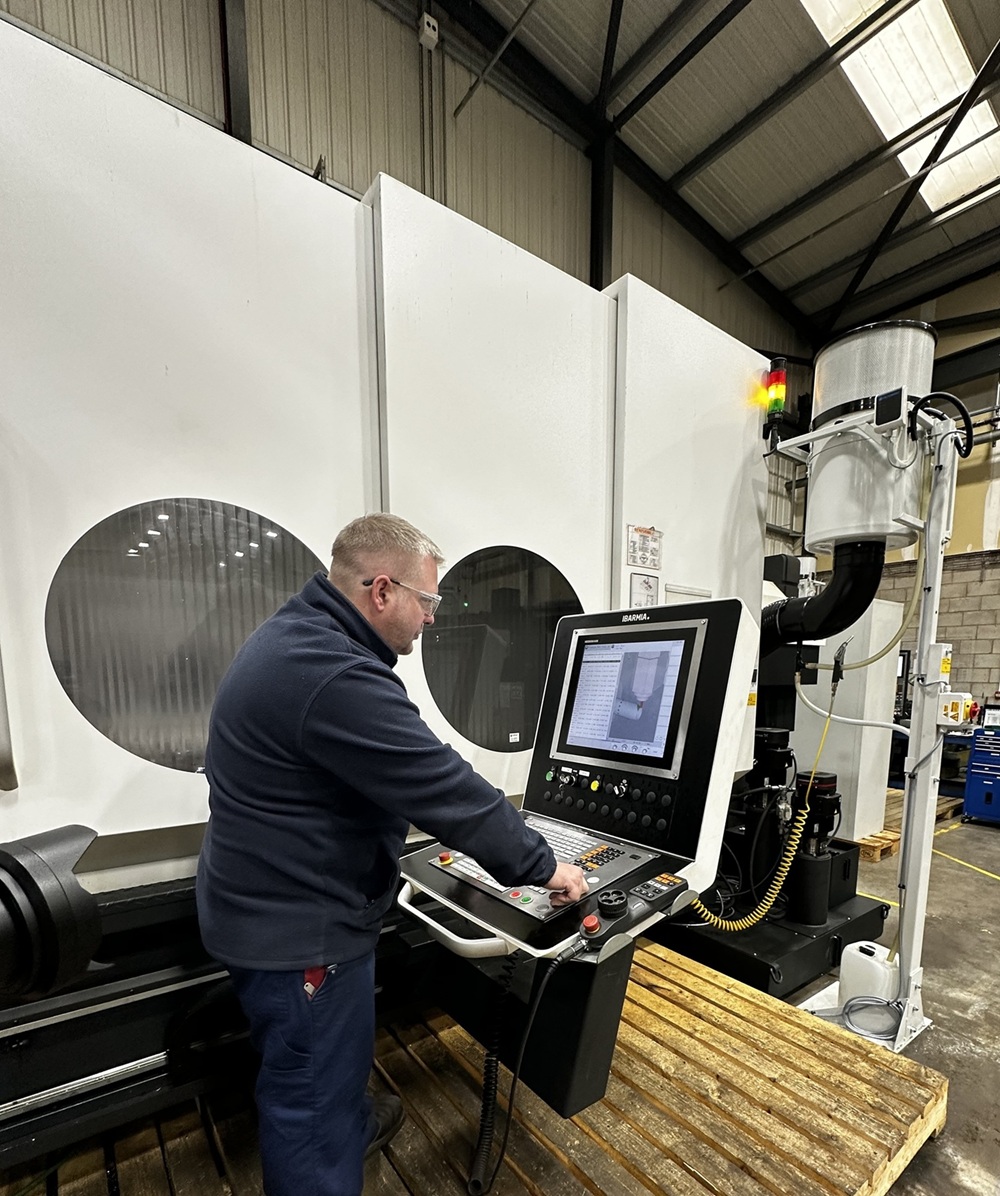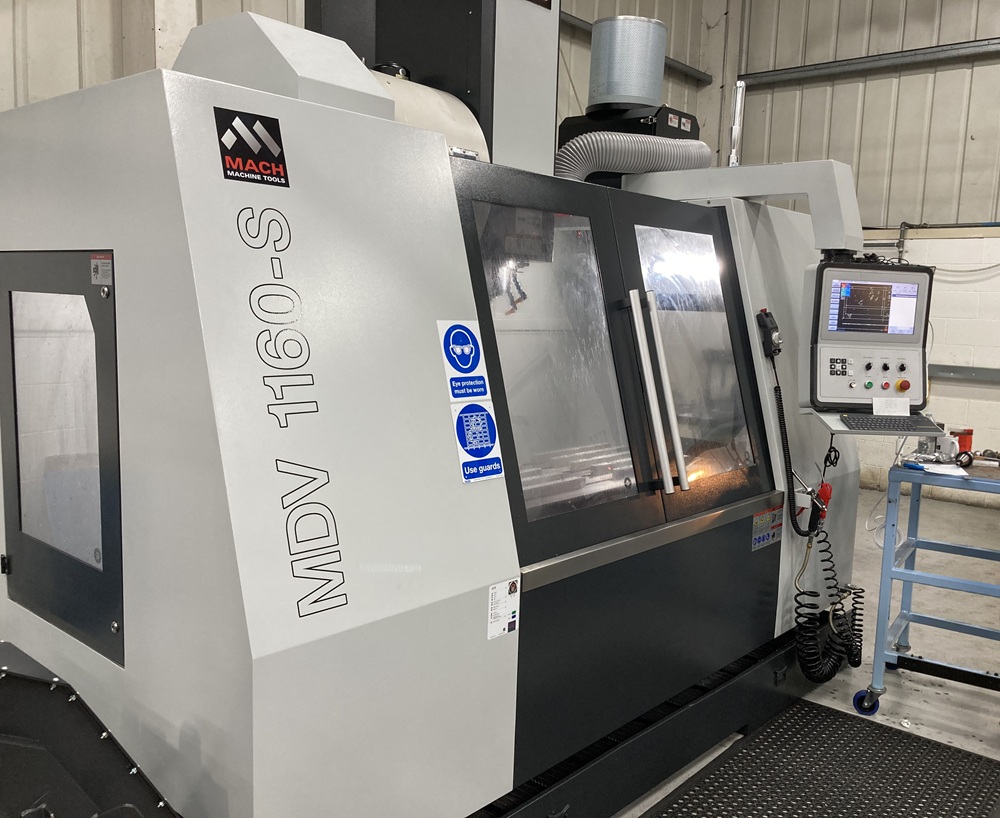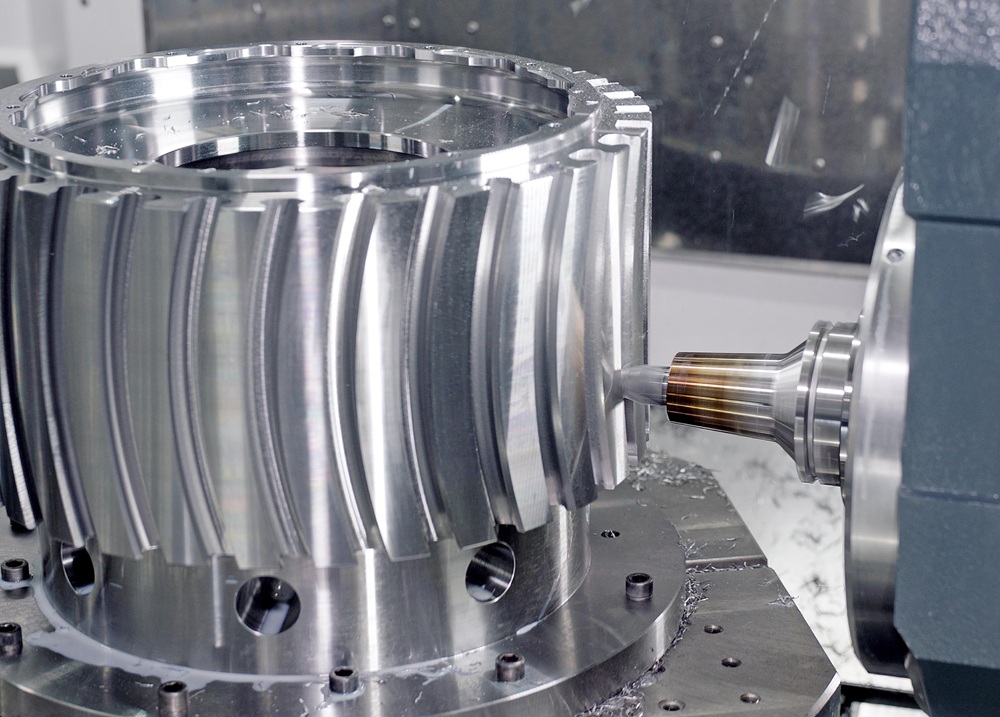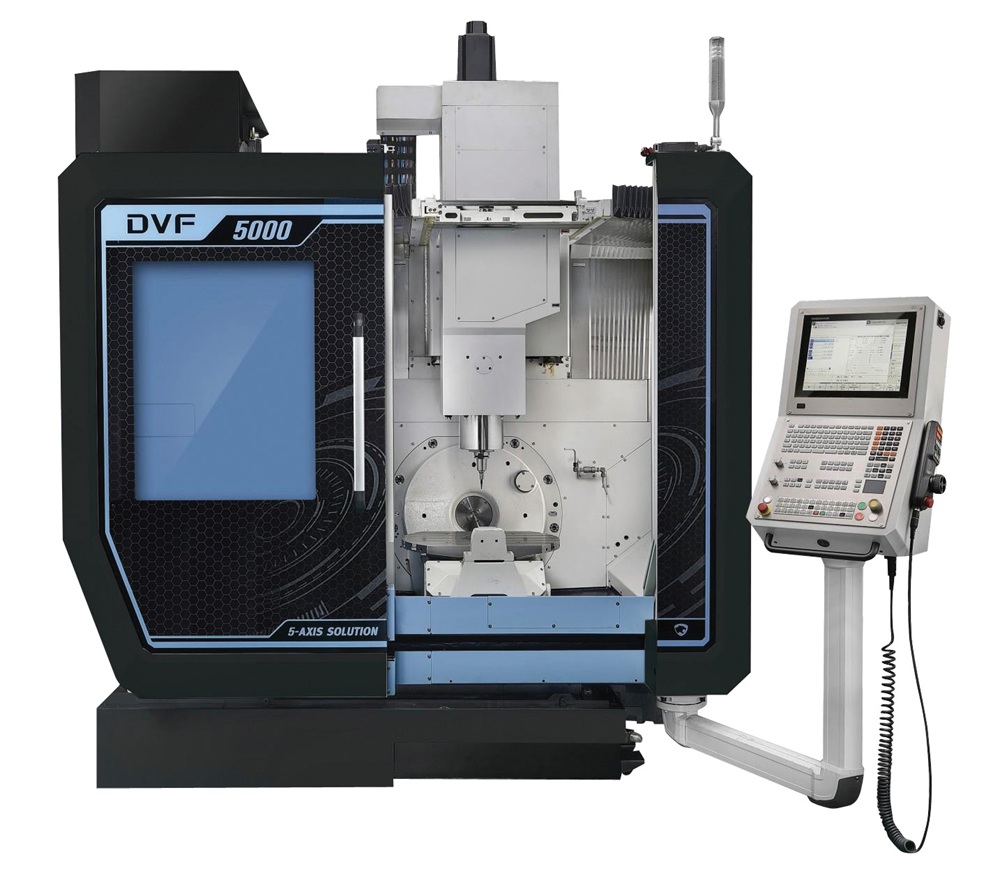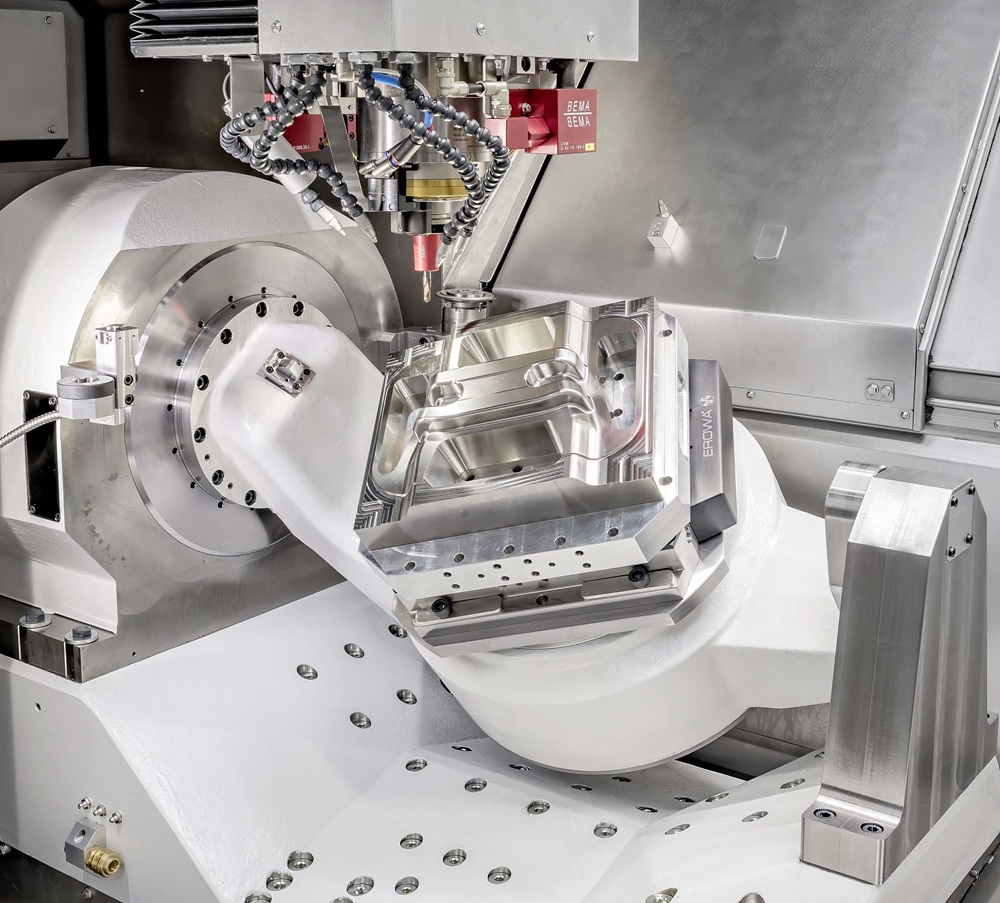Cutting and Wear Resistant Developments Ltd, a manufacturer of specialist downhole tools for the oil and gas industry, has undergone a transformative shift in its production capabilities after investing in an Ibarmia five-axis travelling-column machining centre from Dugard. The company, led by managing director Matthew Cooper, has followed a successful growth trajectory over the past 12 years, and the introduction of this advanced CNC machine has played a pivotal role in supporting its expansion.
Prior to the arrival of the Ibarmia ZVH 45 L3000 machine, the company encountered challenges related to the complexity of its tools, lead time constraints and the efficiency of its manufacturing methods. However, the implementation of the new machine has revolutionised their operations.
The Ibarmia machine, equipped with a high-performance spindle capable of speeds up to 12,000 rpm, has enabled Cutting and Wear to reduce lead times and machining times significantly.
Mark Taylor, CNC programmer, says: “We had one tool that previously took us 11 hours to mill; on the new machine, it was reduced to just two hours.”
One of the stand-out features of the Ibarmia machine is its advanced probing capabilities. By integrating probing into the machine’s programming cycle, Cutting and Wear has eliminated the need for manual programming, further streamlining the manufacturing process.
“We can execute everything on the machine as it’s built into program, so there’s no need to remove it from the machine for inspection,” says Taylor.
The Ibarmia ZVH 45 L3000 machine from Dugard is a five-axis travelling-column machine with an X, Y and Z-axis travel of 3000 x 1200 x 800 mm, and a B-axis head range of ±105°.
More information www.dugard.com






